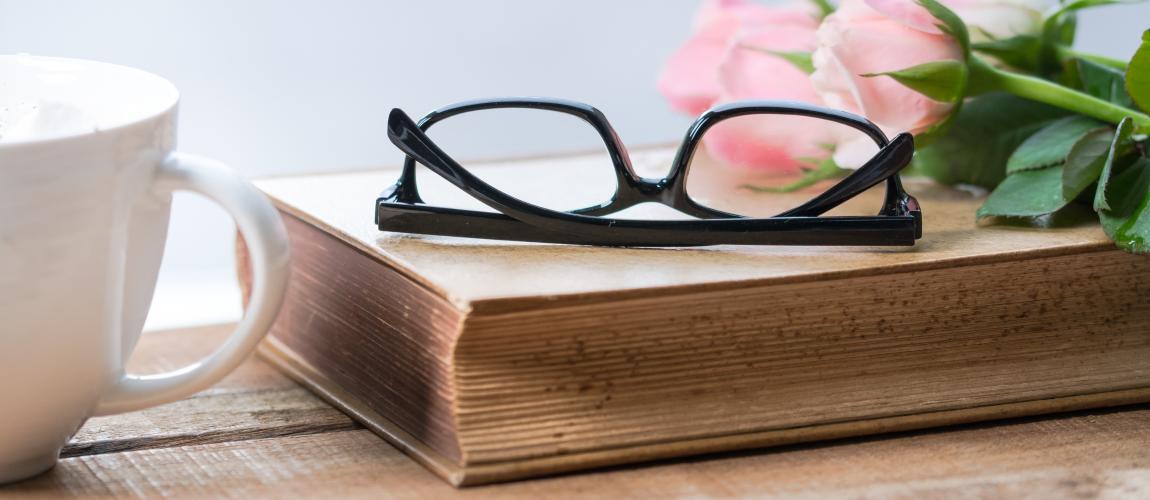

Photo by Ylanite Koppens from Pexels
How to close read
What does it mean to "close read" a text? How do we learn to apply critical thinking to analyze and interpret literature? Read on for a quick tutorial on how to get more out of what you read.

There are two kinds of reading: active reading and passive reading. We’ve all read passively; the eye skims the page and we may be absorbing content, but we’re not engaging with the text. Dissecting a well-written line is like sinking your hands into warm earth: soft, yielding, full of promise. When we dig in the dirt, we are connecting with nature. And when we dig between the lines, we are connecting with human nature. Because all great literature tells us a little more about who we are.
If you’ve always wanted to see more when you read, or you’d like to be able to teach your kids how to better appreciate the written word, you need only to sharpen your vision. I’m going to show you here how much meaning is carried in a poem of only two lines. Here’s the poem:
"In a Station of the Metro"
by Ezra Pound
The apparition of these faces in the crowd:
Petals on a wet, black bough.
Ok, first the title. Not to be ignored. The title gives us our setting, right? We are situated underground, since the Metro in European cities is like the subway in New York City. Notice the use of the preposition “in” instead of “at”. They both indicate location, but think about the difference: “in” means that we are surrounded by something. The poet is subtly emphasizing, perhaps, the fact that we are underground. When you pay attention to the words themselves, you are noting a writer’s diction.
While we are analyzing diction, let’s move on to “apparition”. It brings to mind a mirage, or ghost, as it means something that appears and disappears suddenly. "These faces" are the apparition; they show up “in the crowd” (notice again the use of “in”, as the faces are surrounded by others). At the end of this line, we have a colon, which brings us to our next literary device: punctuation.
Yep, punctuation in literature (especially poetry) is used purposefully, so let’s look at how it is used in these two lines. A colon creates a full stop and signals an answer of sorts to the content presented in the clause preceding it. So here, Pound uses the colon to break the lines and define the relationship between the two. Now, commas create pauses in flow. In the second line, the comma slows the pace, as do the phonetics.
Phonetics is just a fancy word for how letters sound. When we are analyzing literature, sometimes paying attention to those phonetics can add another layer of meaning to the content. Ever read a passage about the ocean and come across a lot of “s” sounds? That’s because the writer is trying to mimic the sound of waves as you read. Some words roll off the tongue (“ocean” is one of them) and some stumble more awkwardly (try saying “isthmus” with grace). Now go back and read the two lines aloud. See how the first one rolls along and the second is slower? With “wet, black bough”, Pound uses plosives (letters which expel air when we pronounce them, like t, b, and k), to slow down the pace of the words as they are spoken. The downbeat is also accentuated with the alliteration of the “b” sound.
Still with me? Ok, so what does all this mean? To bring it together we are going to look at the word “petals”, and begin discussing imagery. All great writing leaves images in our minds, but we want to extend beyond the images to the symbolic meaning they carry. “Petals on a wet, black bough” conjures an image of springtime. Trees bloom in spring, and it also rains a lot, which explains the wet, black bough. Tree bark darkens when it’s wet. But what does a flowering tree branch have to do with a Metro station?
Remember the colon? The second line serves as an answer to the first. So the subject of the first line is the apparition of faces, and the poet is equating them to petals on a bough. The petals can range in color, just like you may see a range of skin tones in a city (I even love the idea of makeup on women tying into the typically feminine color palette of petals). So if the faces are petals, does that make the wet, black bough the dark tunnel of the station? Maybe. Let’s take it a bit further.
Why are we so enchanted with springtime? Because it is fleeting. The trees only bloom in their glory for a few weeks, and then it is over. The same transitory property can be applied to the Metro station, as people and trains are always coming and going and nothing remains static, but also to life in general, yes? We are only here for a short while in the grand scheme of things. And so we see that the juxtaposition of the hustle-bustle station and the natural cycle of a tree is purposeful. If we live our lives at a breakneck pace, swept here and there by obligation, are we living at all? Or might we already be ‘underground’, as the station is? Is Pound asking us to slow down once in a while, as he slows down the rhythm of the second line, in order to enjoy our bloom time? Maybe. See how much can be unpacked from a handful of brilliant words? Ahh, poetry. I love you so.
Was this helpful for you? If so, please let me know! Thanks and happy reading.


4 comments